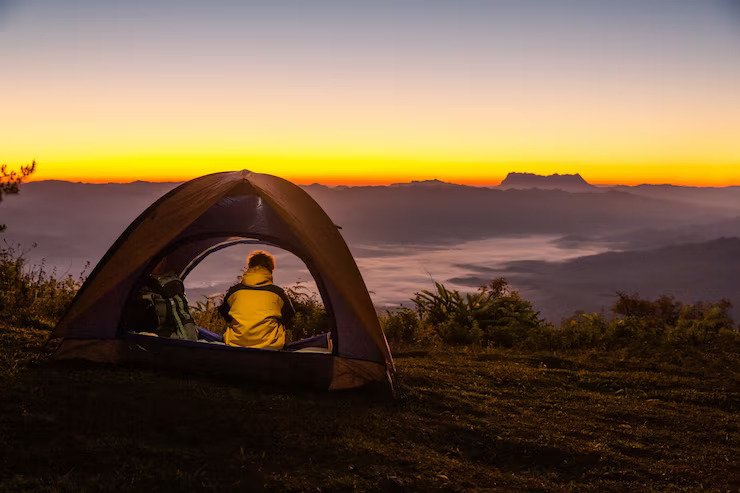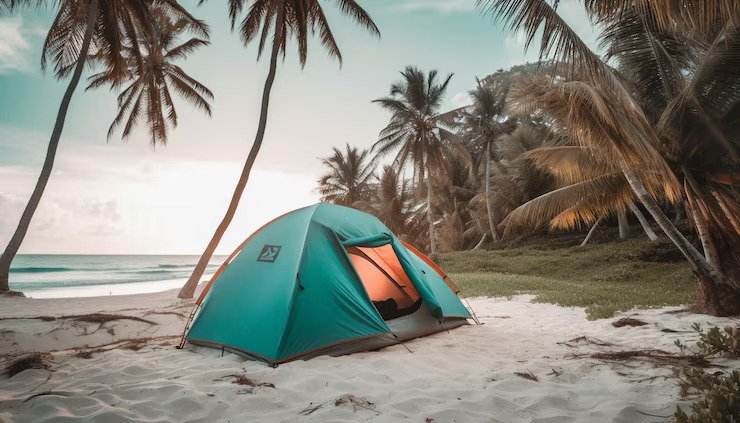Unique Things To Do In Nassau: Planning A Trip To The Bahamas Capital
BY Sibashree Apr 25, 2025
Everyone these days is asking, “Is the Bahamas safe?” Unfortunately, Nassau, the Bahamas Capital, has been under the radar due to rising records of violent crimes, including murders, robberies, and sexual assaults. However, it does not change the fact that Nassau is a wonderful place to plan a trip, as it is one of the best Caribbean destinations, fusing history, culture, nature, and wildlife. It also offers a delightful gastronomic experience and a luxury stay. Additionally, the Bahamian Government has adopted a multifaceted approach to combating the rising crime rate. There have been stricter law enforcement measures, increased attention to social issues, and intelligence gathering to address the growing number of crimes. So, despite most countries asking tourists to observe “extreme caution” during a trip to the Bahamas, we hope that things will get better soon. And with great optimism, in this Tour and Travel Blog, we want to now discuss what are things to do in Nassau Bahamas. “How can we in this small society, how can we not be serious about crime issues when it affects all of us, all of our families, our friends who are dying, these young kids who should be living until they are 70 years of age, killing one another, for what reason? We don’t know.How do we intervene and stop people from doing it? We think that the answer is a long-term solution by starting by the proper investment in the social programs and education. We are doing that. We’re trying to improve the housing [situation]. We are doing that.”Fred Mitchell, Minister of Foreign Affairs, The Bahamas What Is Nassau Bahamas Best Known For? Nassau, the original land of the Pirates, is known for its multifaceted attractions as a tropical getaway. You will fall in love with its white sandy beaches, rich history, cultural experiences, and laid-back charm. Rarely will you find another place where you can dive to a pirate shipwreck and visit a museum dedicated to the history of slavery and emancipation in one day. I will discuss the top things to do in Nassau in more detail later. In this section, I'd like to give you a glimpse of the eclectic experience you can expect in Nassau. And you must remember that the Bahamas is not a part of the US, and every tourist spot in the country is a testament to the country’s pride, way of living, and rich history. Types of Tourist Attractions in the BahamasPlaces to VisitHistorical and Cultural AttractionsParliament SquareThe Straw MarketFort FincastleChrist Church CathedralThe Pompey Museum of Slavery and EmancipationMarine AdventuresBimini IslandsExuma CayNew Providence Island and BREEF Coral Reef Sculpture GardenFood TourismDelicacies such as Johnny Cake and Conch Fritters make the Bahamas the ultimate destination for a foodie. The cuisine here shows eclectic influences, including European, African, and Caribbean cuisines. Visit the local eateries to taste the authentic flavors of the Bahamas. Beaches Junkanoo BeachCable BeachCabbage BeachMontagu BeachParadise Beach What Is The Best Time To Explore The Things To Do In Bahamas Nassau? December to April is the best time to visit Nassau and explore its top attractions. The temperature in these months ranges between 25 and 27 degrees Celsius. Additionally, you will enjoy extended daylight hours during these months. These months are ideal for a variety of outdoor activities, such as swimming, snorkeling, and exploring local attractions. Moreover, events such as the Farmer's Cay Festival (Early February), the Sailing Regatta on New Year’s Day, and the Junkanoo Festival in December and January take place during these months. Refer to the table below to learn about the weather conditions in Nassau by month. It will give you a fair idea about the best time to plan a trip to Nassau. Nassau Weather by MonthHighest TemperatureLowest TemperatureDays of RainfallJanuary25175February26185March27196April28218May29229June302412July312513August322515September322415October332310November30208December27196 What Are The Top Things To Do In Nassau? Finally, it’s time to discuss what are fun things to do in Nassau Bahamas. Let’s discuss the top attractions. 1. Visiting Paradise Island You can begin exploring Nassau with a short trip to Paradise Island. It has powdery sand and turquoise water. Further, it is ideal for water activities such as diving and snorkeling. 2. Exploring Fort Fincastle Start from the Central Square of Nassau and climb the 66 limestone stairs to reach Fort Fincastle, the highest point in Nassau. The stairs and the castle have a history dating back to the 1700s. Also, once you reach Fort Fincastle, you will fall in love with the surroundings. 3. Take A Walk In Versailles Garden And French Cloister https://www.instagram.com/p/DEQLcGzpvH8/ Do you want to experience a slice of French aristocracy in the Bahamas? Plan a visit to the Versailles Garden and French Cloister. The Cloister was earlier a French Monastery. It was reconstructed, and now it looks like the centerpiece of the Versailles Garden. 4. Shop At The Straw Market If you are looking for the perfect Bahamanian souvenir, the Straw Market will be your go-to destination. Here, you will find handicraft items made of straws and conch shells. 5. Visit The Atlantis Aquarium and Aquaventure Water Park Grab the day passes, and explore the underwater scenarios of the lagoons, and meet marine animals at Atlantis Aquarium. Here, you will get to see stingrays. Once you are done exploring the aquarium, you can dive into the water at Aquaventure Water Park. 6. Plan A Boat Trip To The Blue Lagoon Island Take a 15-minute boat ride from Nassau and reach the Blue Lagoon Island for the most delightful encounters with the dolphins. Also, you can kayak, boat, or snorkel in the hidden lagoon there to make the most of the blue water fun! 7. Taste The Spirit Of The Bahamas At John’s Watling’s Distillery It’s time to taste the “Spirit of the Bahamas” or the “Liquid Gold.” It’s a sin if you miss out on tasting the best Rum at John’s Watling’s Distillery. John Watling was a pirate, and there are still many myths around his life. Take a complimentary tour of the distillery seven days a week if you are looking for free things to do in Nassau. 8. Visit The Pirates of Nassau Museum Do you want to have an interactive high-experience? Why not plan a visit to the Pirates of Nassau Museum? The replicas of the pirate ships are stunning, and they will take you back to the 18th century. It was the time when the city indeed was the golden land of the pirates. 9. Visit The Stuart Cove And Dive With Sharks Are you a certified scuba diver? Go for a dive at the Stuart Cove and have a lifetime experience of your encounters with the sharks. 10. Explore The Clifton Heritage National Park https://www.instagram.com/p/DCImyY9S_Nc/?img_index=1 A diverse ecosystem and the historical relics associated with the Lucayan people are the biggest draws to the Clifton Heritage National Park. Further, it is the location of the celebrated movies like “Jaws” and it has featured in a few movies of the James Bond series. You will love the beaches here. However, the real fun awaits under the water when you snorkel and explore the sunken shipwrecks. So, Is Nassau, Bahamas Worth Visiting? With the best things to do in Nassau being very diverse, and as the capital of an important Caribbean nation, Nassau is absolutely worth visiting. Furthermore, the beaches, parks, marine attractions, and historical sites offer something for every type of tourist. However, the rising crime rate is a concern for the tourism industry of Nassau and the Bahamas. The US Travel Advisory mentions, “Most crime occurs in Nassau and Freeport on New Providence and Grand Bahama islands. Stay alert in the "Over the Hill" area in Nassau, south of Shirley Street, where gangs have killed residents.” Hopefully, as promised, the Government will combat this issue through social developments, stricter regulations, and intelligence gathering. It is important to consolidate the over 11 million visitors to the country in 2024. Unique Things To Do In Nassau, Bahamas: Frequently Asked Questions (FAQs) There are some frequently asked questions and answers about things to do in Nassau, Bahamas. 1. What To Do In Nassau, Bahamas For Free? There is no dearth of free and cheap things to do in Nassau Bahamas. Based on your interest, you can take a walking tour of Arawak Cay, Bay Street, Parliament Square, and Straw Market. Furthermore, you can visit historical sites such as the Queen's Staircase, Christ Church Anglican Cathedral, and Fort Fincastle. 2. What Are The Free Things To Do In Nassau, Bahamas Cruise Port? A visit to Arawak Cay is one of the most exciting free things to do in the Nassau Cruise Port. Arawak Cay is just a 15-minute walk or a 5-minute taxi ride from Nassau Cruise Port. You can even visit the nearby Straw Market, enjoy swimming and sunbathing at Junkanoo Beach, and do window shopping at Bay Street. 3. What Are The Things To Do In Nassau, Bahamas For Adults? Nassau has a very vibrant nightlife. The bars, lounges, and casinos in Nassau will shower you with the best hours of fun and games. So, if you are an adult and want to experience a slice of the Nassau nightlife, you can visit Atlantis Casino and Baha Mar Casino. 4. What To Do In Nassau For A Day? You can accomplish a great deal in Nassau in one day. Having said that, you need at least 4-5 days to explore the best of Nassau. If I were in Nassau for just one day, I would take a short boat ride to Blue Lagoon Island. You can also try snorkeling and swimming at Cable Beach. Furthermore, if you are a history enthusiast, you can plan a visit to the Pirate Museum, Fort Fincastle, Bay Street, Clifton Heritage National Park, and Rawson Square and Parliament Square. Also, for some relaxed time in nature, you can go for a walk in the Versailles Garden and the French Cloister or Ardastra Gardens and Zoo. 5. What Are The Things To Do In Nassau Bahamas For Couples? Nassau, especially Paradise Island, is an ideal destination for couples seeking a truly romantic experience. You will love the pristine beaches with white sand here. Additionally, the turquoise water here creates a serene ambiance. So, as a couple, you can plan a cruise trip to Paradise Island in Nassau. Also, you can plan a stay in any of the luxury hotels or resorts on Paradise Island. Hotels like Sandals Royal Bahamian further offer adult-only stays. So, it’s time to get soaked in steamy romance. 6. What Are The Things To Do In Nassau Bahamas When On A Cruise? The cruise tourism industry in the Bahamas has experienced significant growth over the last few years. In the 2023-24 cruise year, the cruise tourism industry in the Bahamas recorded a whopping $654.8 million in revenue.The diverse experiences during a cruise trip in the Bahamas have prompted growth in the specific sector. Additionally, if you are in Nassau on a cruise, the best activities to do will depend on your interests. For example, if you have a keen interest in history and culture, you must explore places such as Queen's Staircase, John Watling's Distillery, Straw Market, Fort Fincastle and Government House, and Parliament Square. However, if you want to have some fun at the beach, Blue Lagoon Island, Cabbage Beach, Paradise Island, and Exuma Cay will be your go-to destinations. 7. What Are The Things To Do In Nassau When It Rains? June to November are the months with the heaviest rainfall in Nassau, Bahamas. August is the wettest month of the year, with an average rainfall of 24 cm. Heavy rainfall continues till October (16 cm), and from September to November, the Bahamas also experiences tropical storms. Having said that, a rainy day without storms is beautiful in the Bahamas, and the things to do are a visit to Paradise Island and Rose Island, reef snorkeling, parasailing, and a swim with pigs on Rose Island. Also, if you are an indoor person, a visit to the Baha Mar Casino is one of the fun things to do in Nassau on a rainy day.














